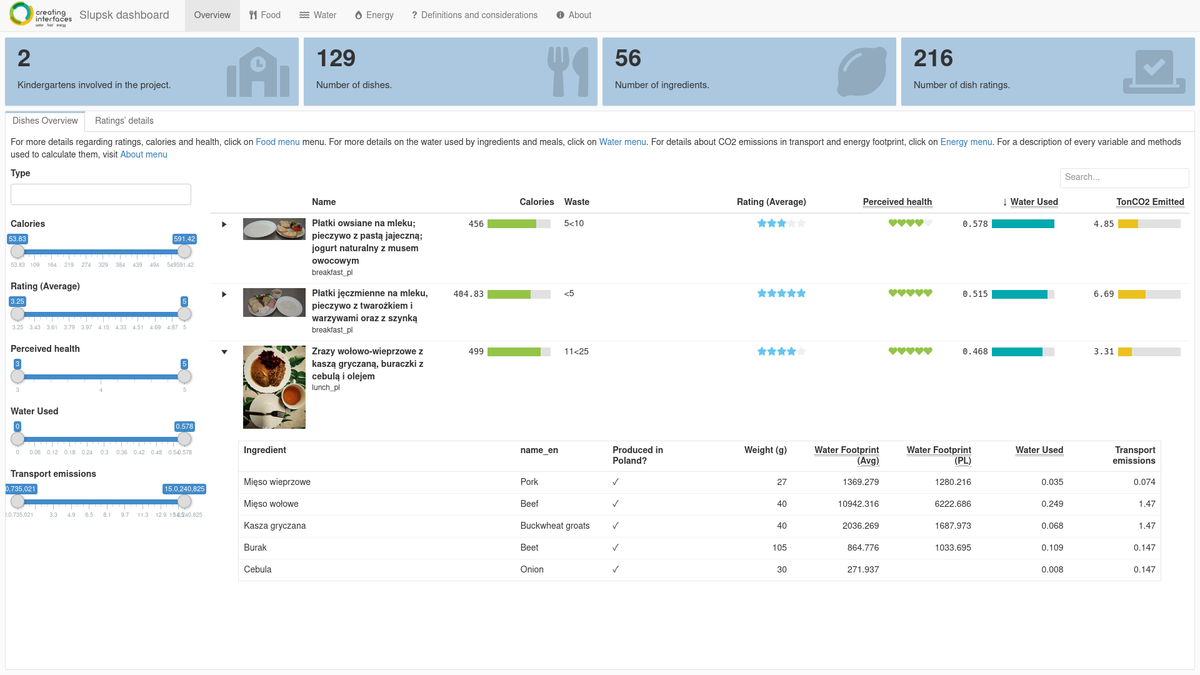Creating Interfaces

An open source prototype for a visual interface to support research and Nexus engagements, designed collaborativelly as part of Creating interfaces' WP4, developed by the Institute for Global Sustainable Development at the University of Warwick.
Aim
The aim of this tool is to provide an interface capable of understanding the implications of our decisions regarding food, and how can meals in kindergartens be turned into drivers for positive change for the health and the environment.
The visualisation tool may be helpful to perform tasks such as:
- Identify highly rated meals and the lower rated meals
- Identify meals with higher footprint
- Identify ingredients with higher footprint
Which, ultimately, will lead to discussions and reflections on how food, energy and water are interlinked and how small changes in food can make a big impact.
Online demos
- Food in Kindergartens, Slupsk (Poland): Dashboard
- Food waste, Wilmington (USA): Scrollytelling
- Local producers, Tulcea (Romania): Interactive map
Source Code
- Source Code: https://github.com/IGSD-UoW/wfenexus
- Licence: GPL
Acknowledgements
This study was conducted in the Creating Interfaces project, funded within the framework of the Sustainable Global Urban Initiative (SUGI) Food-Water-Energy Nexus program. This program has been set up by the Belmont Forum and the Joint Programming Initiative (JPI) Urban Europe and has received funding from the European Union’s Horizon, 2020 research and innovation program under grant agreement # 730254 and the following national funding agencies: United Kingdom Research and Innovation funding was received through the Economic and Social Science Research Council (ESRC) grant ES/S002235/1; the National Science Center (NCN) of Poland funded this work under grant #UMO-2017/25/Z/HS6/03046.